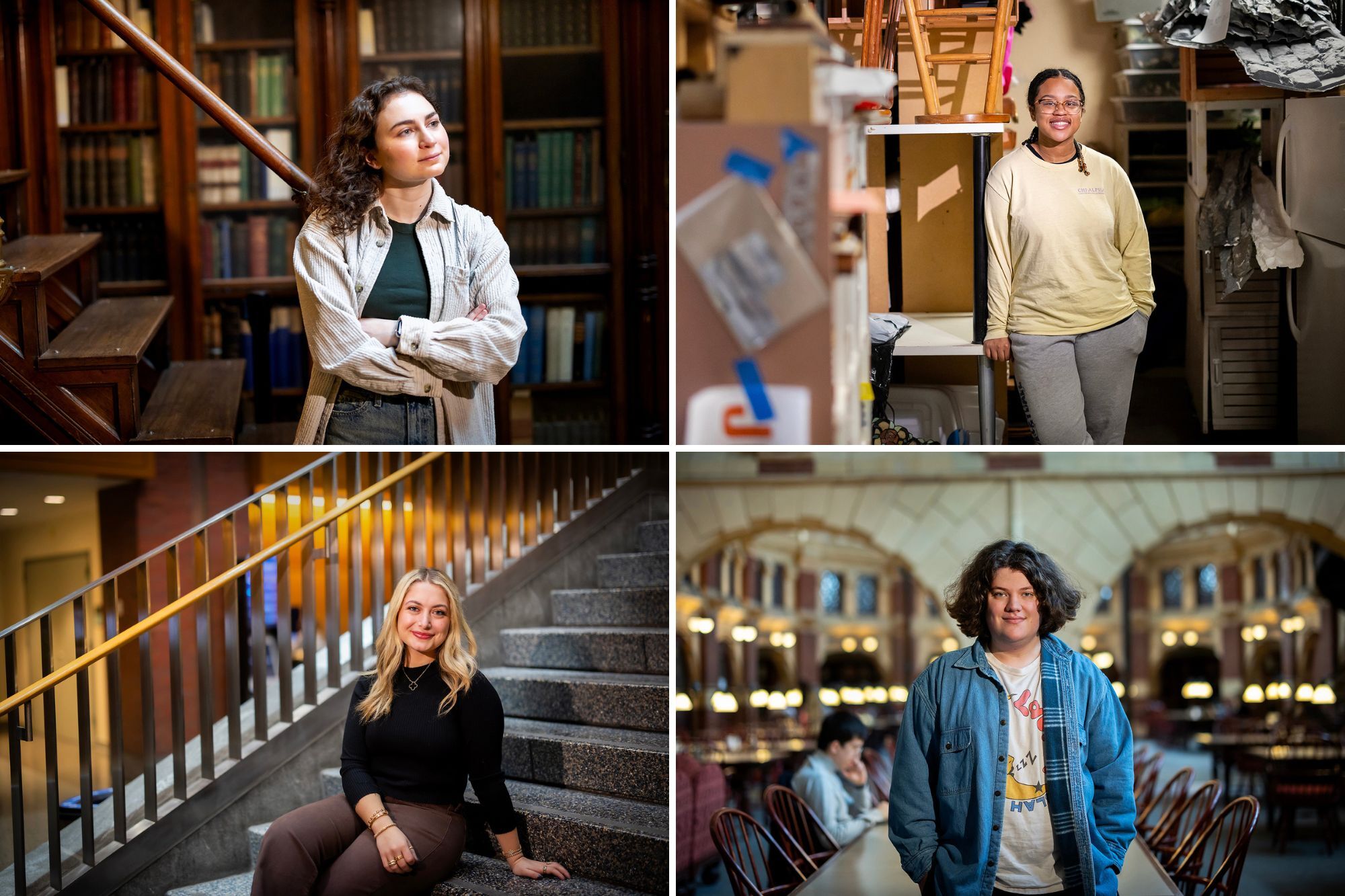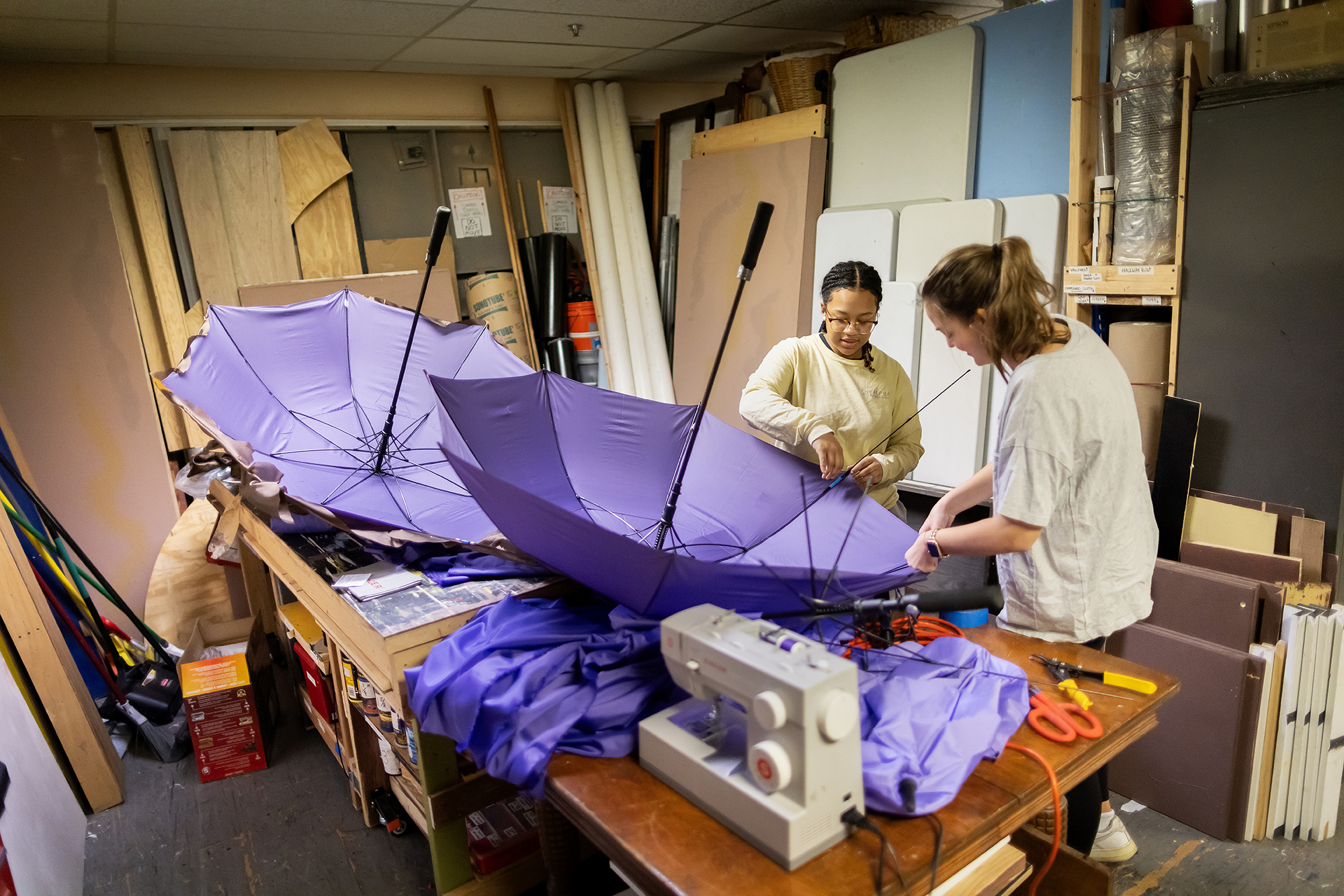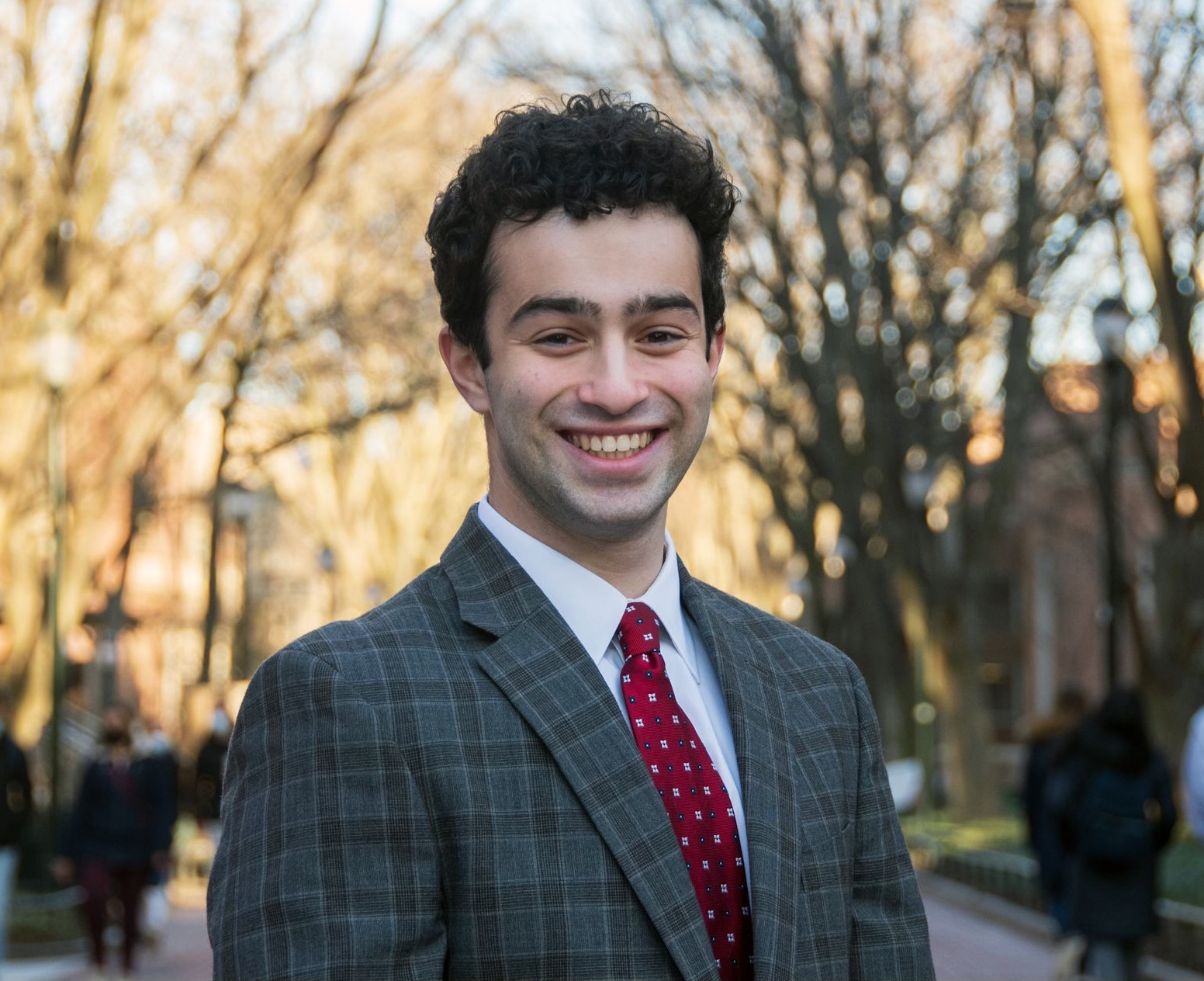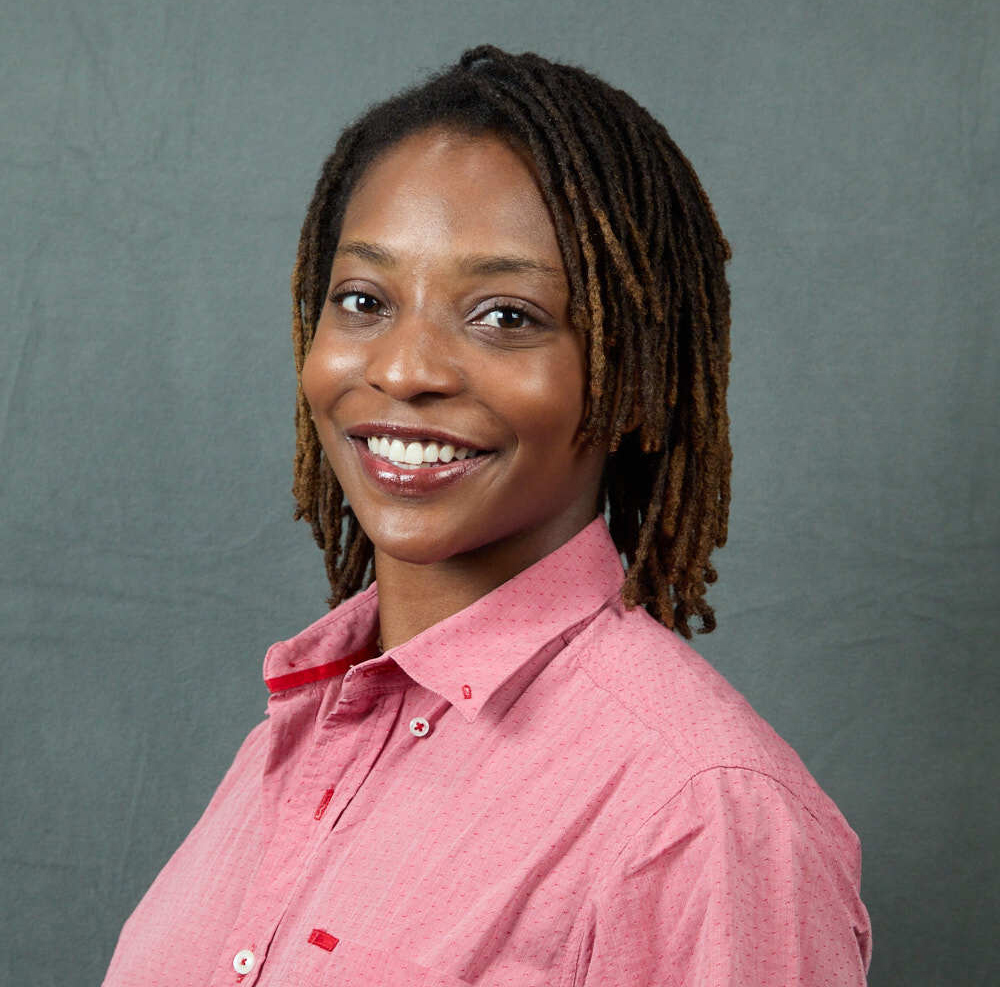
Now a second-year student in the College of Arts and Sciences, Max Brody entered the University of Pennsylvania knowing he wanted to go to medical school. Growing up in small-town Oklahoma, he saw the health impacts of tribes being forcibly displaced from their native lands—including vastly higher rates of diabetes among Native Americans.
Brody began college as a health and societies major, and he enjoyed the classes. He went into Rita Copeland’s first-year seminar on emotions simply trying to get his English requirement out of the way, but Brody was wowed, and then a gothic literature class solidified his interest in declaring an English major instead.
According to admission statistics from Career Services, the students applying to begin medical school in 2023 included 15 health and societies majors and zero English majors. Brody’s family and classmates didn’t quite understand his shift.
Brody wrote about the choice in a column for The Daily Pennsylvanian titled “In defense and in celebration of the humanities pre-med,” which he says was intended to show that English is a valuable major, imbuing a sense of empathy and ability to analyze a person. In it he touches on his frustration with the view that humanities requirements are a distraction for pre-med students.
“I want to take my knowledge of empathy, as well as the sciences that I’m learning through my pre-medical classes and combine them so I can clinically treat but also advocate for a person individually,” Brody says. While sitting for an interview amid balancing organic chemistry midterms with a 7-page essay on the documentary “Paris is Burning,” he continues, “Medicine is not disconnected from reality; it’s always connected into the context that we’re living in.”
While the most common majors for pre-med students at Penn are biology and neuroscience, there are other humanities majors on campus mapping out a career in medicine. Like Brody, they share a sense of satisfaction from the balance of courses engaging different parts of their brain.
Carol Hagan, has advised pre-health students at Penn for more than 15 years as senior associate director of graduate school advising. She says she reassures students “at the outset that they don’t have to do pre-med in a very specific way, that their pre-med journey at Penn can look very different from other people’s and be equally successful.”
Last year, Penn’s rate of applicants who matriculated into medical school was 79% compared to 44% nationwide, and Hagan says humanities majors do just as well as the others. She notes that regardless of major, all pre-medical students must take—and do well in—the same pre-medical classes, take the MCAT, and spend time around patients.
Hagan says when medical schools see students with humanities degrees applying, they know the applicants excel both in and outside the sciences. She says history majors, for example, have well-developed written and verbal communication skills, tend to be evidence-based thinkers, and are “very comfortable being in the gray areas of knowledge”—which are all assets in medicine.
Classically trained
When she had to take Latin in sixth grade, Sutton Grossinger hadn’t expected to love it as much as she did. The third-year says she felt that translating was like a puzzle—with the elements of problem solving and critical thinking that also drew her to science. While hearing from clinicians in a comparative anatomy and neuroscience class in high school solidified her interest in pursuing a career in medicine, she wasn’t ready to let go of Latin.
“I don’t think that just because I’m interested in one thing, I should have to sacrifice all the other interests, which is great that I don’t have to do that here,” says Grossinger, who is from Wynnewood, Pennsylvania. Applying to colleges at the height of the pandemic, she reached out to a few Department of Classical Studies professors at Penn and joined a class Kim Bowes taught on Zoom. Grossinger recalls logging off and telling her parents all about it.
“There aren’t as many schools that have amazing departments in both humanities and STEM,” she says. “But I found that Penn—with their amazing classics department and having all the opportunities of not only Penn Medicine but also all the hospitals in the surrounding Philadelphia area—made sense for me.”
Grossinger says she tries to do half pre-med and half classics courses each semester, balancing large lecture hall classes and small discussion-based ones. Outside of the classroom, she has done clinical sleep research with Philip Gehrman in the Perelman School of Medicine, and served as a student leader with CogWell, a nonprofit that empowers students to address mental health issues with their peers. Grossinger has also shadowed a plastic surgeon, orthopedic surgeon, and neurologists.
“When people ask me why I’m doing a classical studies major, I always say it teaches you how to think,” Grossinger says.
The world’s a stage
Like Brody, second-year student Emily Monfort wants to be a physician and entered Penn majoring in health and societies. She later decided to study music and neuroscience, thought about music and biology, and settled on theater and nutrition.
Monfort says theater was something she’d enjoyed childhood. She says, “I love that at Penn I can continue to study and continue to learn it more.” After taking Introduction to Theatre Arts her first year, she served as stage manager for the coming-of-age play “Athena,” which students performed at the Edinburgh Festival Fringe last summer. She is on the production team this semester, helping build sets, and sings in the Penn Glee Club.
“I saw a lot of transferrable skills between medicine and theater, in looking at character and analyzing character—what does this character do, what is this character interested in,” Monfort says. Comparing surgery and theatre, she says the teamwork and mechanics that go into building a set mirror skills involved in running an operating room.
Culture and medicine
As a second-year, Tova Tachau shadowed a living-donor liver transplant surgery and “had that eureka moment of ‘Wow, this is incredible, this is what I want to do,’” she says. Tachau compares it to the “amazement and fascination” she felt seeing Cirque du Soleil at age 12.
She entered Penn with a plan to double-major in biochemistry and biophysics. But then she took a 20th-cenutry Russian literature class to fulfill a prerequisite and says she “ended up falling in love with the subject.” Now in her third-year, she has kept the biochemistry major and declared comparative literature and Russian and East European Studies majors.
“It provided a release from constant memorization and problem-set-oriented studies,” says Tachau, from Wayne, Pennsylvania. Being in the MLS program, she got general chemistry, calculus, and physics out of the way her first year and says it’s been relatively easy to fulfill pre-med requirements alongside humanities courses.
“There are definitely really interesting ways that culture and medicine interact,” Tachau says, citing her interest in how the health care system struggled after the fall of the Soviet Union—and the response of physicians such as the British doctor Henry Marsh, who has worked with neurosurgeons in Ukraine since 1992. She hopes to professionally pursue her interests in tandem and is considering applying to MD/Ph.D. programs.
The view after undergrad
Alex Frumovitz graduated from the College of Arts and Sciences in 2023 with a bachelor’s degree in history. He has since been working at Columbia University Irving Medical Center in an immunobiology lab focused on natural killer cells, and is in the process of applying to medical schools for the fall.
“I always enjoyed science, especially biology, and my dad’s a doctor. He never really pushed me to go into that direction,” says Frumovitz, who is from Houston, but says he saw the way his father interacted with patients and how much he enjoyed his work.
Knowing that he was going to be doing “a lot of science in medical school and for the rest of my life,” he says he wanted to be able to pursue something different in undergrad. At Penn, he took courses as varied as Greek and Roman Medicine, East Asian Diplomacy, Witchcraft & Possession, and The History of U.S. Baseball.
Frumovitz says his advice to current pre-med humanities majors is to lean into classes on reading and writing, and to balance their time and get in a headspace “that allows you not to over-exert yourself or run out of steam.”
Zonía Moore, now a fourth-year student in the Perelman School of Medicine, wants to pursue a career in dermatology and was a humanities pre-med undergrad. She majored in Romance languages and literature and Hispanic studies at Dartmouth College, and says her knowledge of Spanish helped her as a clerkship student to translate the nuances of what patients are saying and understand how their suffering can be culturally dependent.
Being able to speak more than one language, Moore says, “you have more understanding of the human condition and you have more of an understanding of what your patients are going through.” Knowing Spanish helped her in completing a Fulbright Scholarship with a dermatologist in Mexico City last year.
Moore says she entered Dartmouth with the mindset, “I’m probably going to study more science than I ever wanted to study in any case, so why should I start that now?” She encourages students interested in the pre-med humanities path to plan out what that will look like so they don't end up having to pay for postbaccalaureate classes, and to not be afraid to take time between college and medical school. Moore took three gap years, during which time she worked in consulting, studied for the MCAT, and took a postbaccalaureate course in physics.
One of the biggest benefits of studying the humanities, Moore says, is being a better writer, noting that she thinks her personal statement got her more medical school interviews. Moore further touts the benefit of being well-rounded and having broad interests. “At a cocktail party on a Friday night,” she says, “no one wants to hear about the Krebs cycle.”










